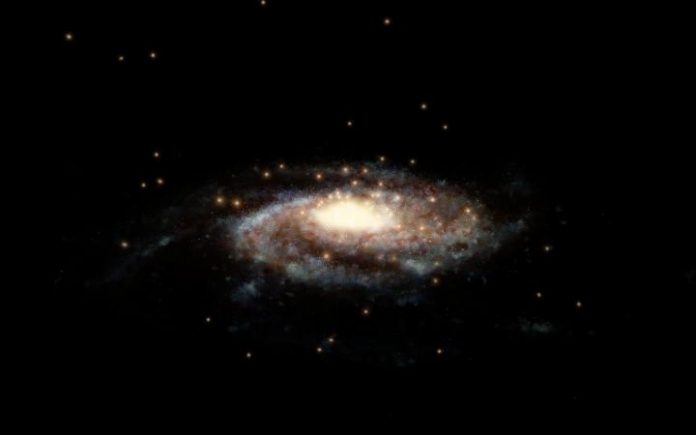The Hubble Space Telescope has just released some spectacular new cosmic eye candy. This wild image shows NGC 6052, a pair of colliding galaxies 230 million light-years away.
William Herschel first discovered the object in 1784 and thought it was a single galaxy. More recent observations have demonstrated that’s not the case; instead, it consists of two galaxies merging under the influence of gravity. Last imaged in 2015, this newest observation presents a clear picture of the object using Hubble’s Wide Field Camera 3 instrument. Now, each individual galaxy is clearly visible; it looks as if the spiral of one galaxy seen head on is being absorbed by the other, viewed from the side. But one day they’ll merge so much they’ll be indistinguishable.
The image itself might look chaotic, but aside from the spectacle in the sky, anyone living in the galaxies themselves likely wouldn’t face any danger: stars in galaxies are so far apart that it’s unlikely for any one to collide with another in a merger. It is possible, however, for some stars at the galaxies’ outer regions to be ejected. Galactic collisions could also reshuffle the stars, moving them further from or closer to the core of the new galaxy.
Galactic collisions are a common event in the lifespan of galaxies. Scientists have hypothesized that our neighboring Andromeda galaxy experienced mergers of its own in its past, for example.
Perhaps the newest view of NGC 6052 will give you some hope for the future. Our own Milky Way is destined to collide with the Andromeda galaxy, according to astronomers’ simulations. That collision won’t happen for four billion years or so, but it would also be an incredible spectacle. Unfortunately, at that point, the Sun will probably be too bright for Earth to support life.








